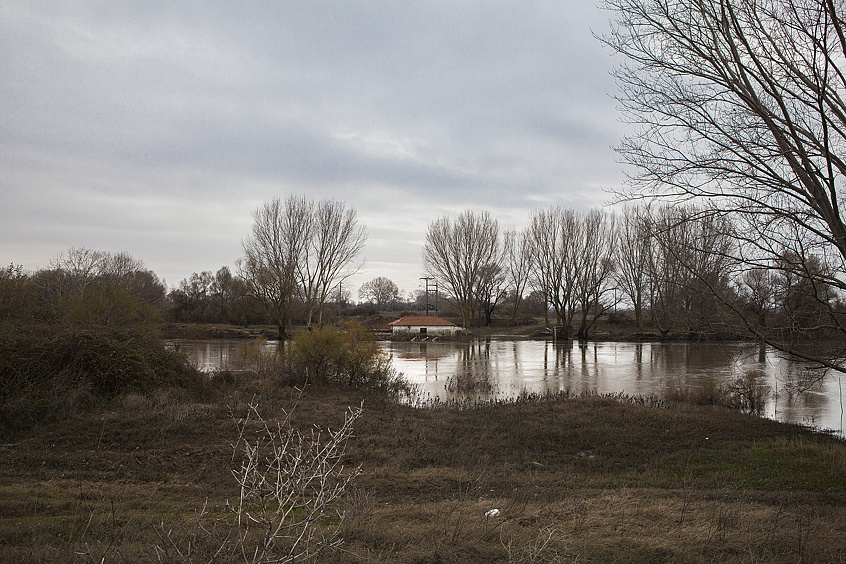
photo: Stathis Mamalakis
Conclusions, someone said, should always be temporary. The research of Studio 14, constructed in an irregular way through continuous detours and refusing to find shape in a final result, continues in Kassel the collective investigation started in Athens, suggesting new entries still to be narrated.
Ancient Greece, both Dionysian and Apollonian, is the sea where Western culture—from the Middle Ages to the present—cyclically returns, with different ambitions and degrees of force; plunging in like a deep-sea diver to retrieve mysterious creatures and objects. It is the Greece of the Romantics that the modern prophets excavated, in search of their own traditions. It is also Knossos’s false labyrinth built of reinforced concrete; the housing plans for the refugees expelled from Turkey; the “Mediterranean” rationalist architecture of the Italian colonists whom some people still insist on calling brava gente. A history of occupations, from the blurry, multifaceted, irreducible identity of Europe to the literally invented tradition of modern Europe.
“The Parthenon, to my eyes, in a sublime way, was a myth I detested: the intellectual clarity, the geometric hauteur, the ignorance of the magma, of disorder, of dreams, demons, and nightmares; I was faced with the obsessive myth of what Europe was supposed to become,” warned Giorgio Manganelli, a writer apart, upon arrival in Athens in 1971 after his unique journey in magmatic “Black Africa.”
Greece: A questioned identity that is now being discussed again by thousands of men and women who are once again reaching these shores from different cultures, speak different languages, express opposite desires, and are willing to learn the language and the volksgeist passed down by the fables of the Brothers Grimm. It is the sea of pirate ships, of merchant vessels, all the way to the gigantic container ships of contemporary logistics. The ships have crews of many tongues, ships of the great expeditions and the global market, which from the 1600s to the present repeats, always the same, always different, along new and old routes.
Studio 14 sets out to inhabit the ambiguity of these spaces, the real and the imagined of place, and to enact estrangement perspectives through a common research that brings together artists, writers, political activists, scholars, students, and anyone who wants to plunge “into the undersea world of the modern, unarmed of any specialist harpoon, unequipped with doctrinaire glasses,” as Italo Calvino wrote in the introduction to the Italian Folktales in 1956. Studio 14 is a research and work place that through discussion, readings, screenings, site visits, and a resource of documents, books, and artworks collates and weaves together various ways of acting on the present, starting from Europe’s own invention of Greece.

